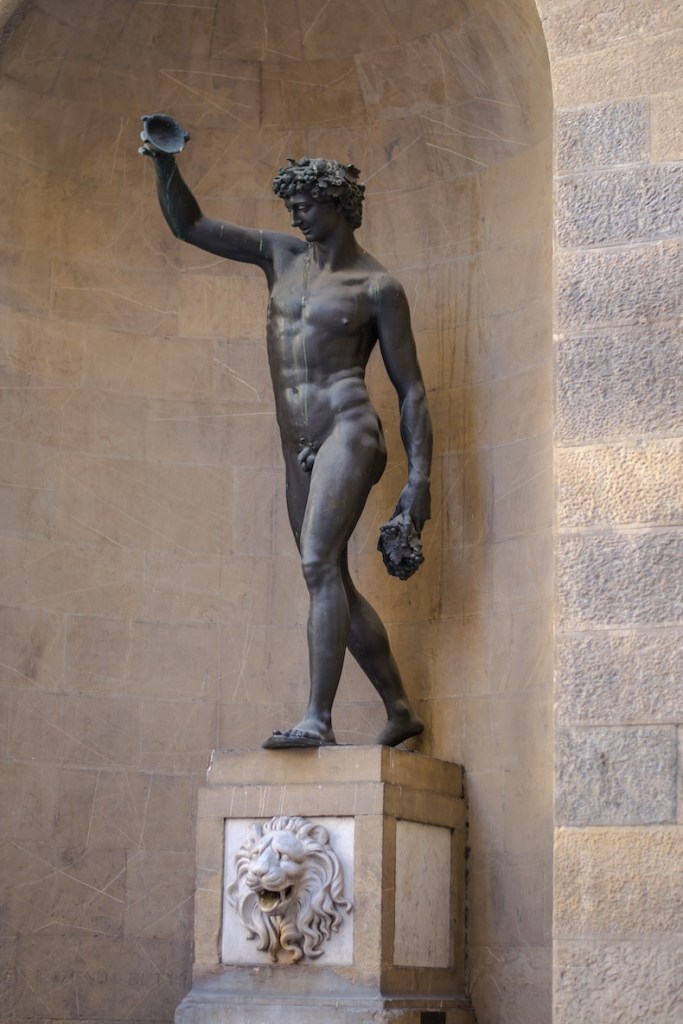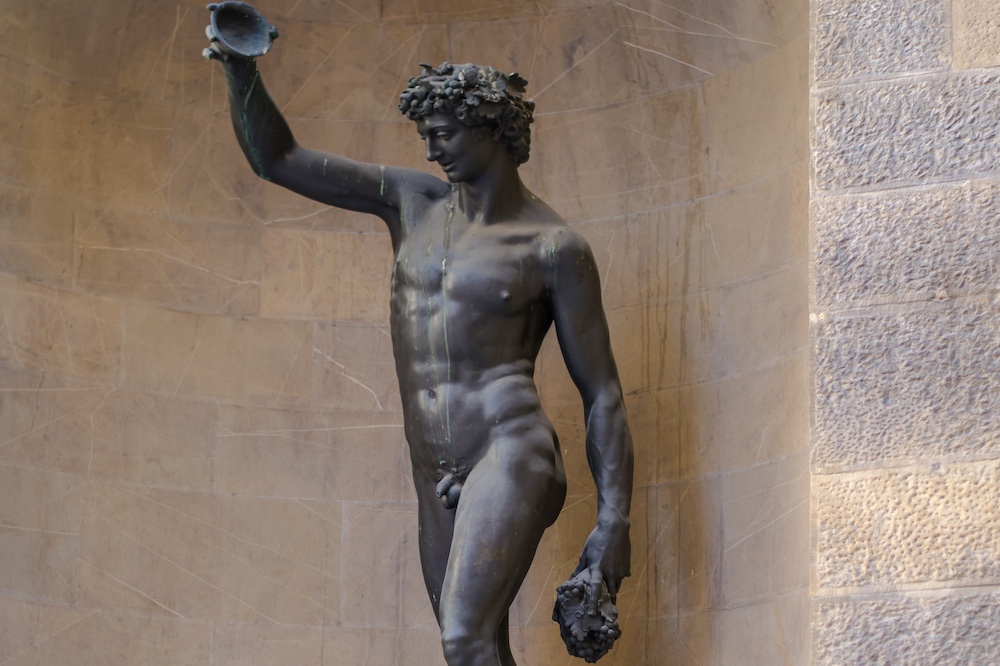Rakewell, Apollo’s wandering eye on the art world, takes a rakish look at art and museum stories.
‘Over-tourism’ is a term that is frequently bandied around both by city legislatures that aren’t quite sure how to handle these vast bodies of people – see, for example, Venice’s recent introduction of a day pass to visit the city at peak times – and by tourists who are unhappy that their holiday is being interrupted by people who had the same idea as them. Yet tourism has always been a risky business. And one recent accusation of ‘over-tourism’ seems misplaced.
Reports emerged this week that a tourist had taken it upon herself to kiss (and mimic other acts with) a statue of Bacchus on the Borgo San Jacopo, near the Ponte Vecchio in Florence. This is not the first time someone has been caught kissing a statue. In September 2023 a tourist was spotted ‘canoodling’ with The Little Mermaid in Copenhagen. Bacchus, of course, has form in inciting frenzied behaviour – just ask the Maenads. (Mermaids have some form in this as well). But so too does Florence itself. When Stendhal visited the basilica of Santa Croce he fled in a state of ‘ecstasy’, overcome by an ‘impassioned sensuality’. Stendhal had the sensible response to lie down on a bench outside the church to compose himself – not that he always made the right decision in the face of ‘celestial sensations’.
The statue of Bacchus, which received unwanted attention from a tourist this week. © Shutterstock/Nadzeya Lashaniova

Psychiatrists have subsequently built an entire pathology around this effect, now known as Stendhal syndrome. Even Rakewell has been known to succumb to such feelings in the face of great art, though we note that certain sceptics still prevail within the profession and it has not yet made an appearance in the Diagnostic and Statistical Manual of Mental Disorders. Stendhal, however, knew that love – including that of art – was no rational thing. As he said in Love (1822), ‘Love is like fever; it comes and goes without the will having any part of the process.’
Perhaps, far from the image of a tourist behaving with the loutishness associated with mass tourism, we are seeing someone giving in to the full effects of Stendhal syndrome. If only there had been a bench a little closer.
Got a story for Rakewell? Get in touch at rakewell@apollomag.com or via @Rakewelltweets.




